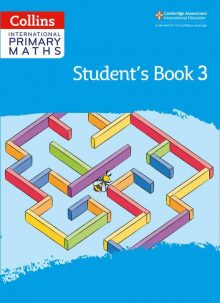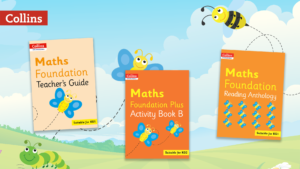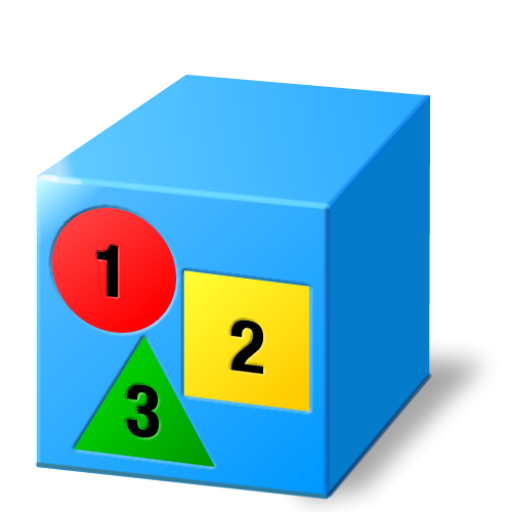Busy Ant Maths (2nd edition)
The 2nd edition of Busy Ant Maths includes with new pupil textbooks, updated components including teacher guides and a whole new set of resources for Foundation Stage.

Busy Ant Maths Second Edition:
· Provides clear progression from year 1 to year 6
· Summarises the most important knowledge and understanding
· Makes connections between core concepts across year groups
· Addresses the areas in the curriculum identified as a priority (Ready-to-progress criteria): Number and place value, Addition and subtraction, Multiplication and division (including number facts), Fractions and Geometry.
Click here to find out more.
Click here to read a review of Busy Ant Maths.
Collins International Primary Maths (2nd edition)

Inspire primary learners worldwide with a problem-solving approach anchoring mathematics in a real-life international context.
Collins International Primary Maths offers full coverage of the Cambridge Primary Mathematics curriculum framework (0096), with a discovery approach that supports learners as they think and work mathematically.
Lesson plans follow a highly effective and proven lesson structure with a ‘big idea’ at the centre, anchoring mathematics in a real-life international context.
Activities, exercise and investigations provide opportunities for learners to apply their knowledge, skills and understanding of the mathematics they are learning.
Consisting of a Student’s Book, Workbook, Progress Guide and Teacher’s Guide for each stage, the course also offers a digital component to support teaching and extend learning through slides and interactive maths tools and games.
Click here to find out more.
Collins International Maths Foundation
Collins International Maths Foundation and Foundation Plus provide inspirational, fun and age-appropriate learning for children in early years and kindergarten classes.
The materials have been developed in consultation with expert practitioners to be easy to use in the classroom and to support children following a range of early years curricula and who are preparing for their first year of primary education in an international school, including schools following the Cambridge Assessment International Education primary framework.
The course introduces young children to maths concepts in an age-appropriate way through topic-based discovery and activity-based learning, with plenty of opportunities to explore maths through games and hands-on exploration. Careful progression ensures children develop the skills they need to be ready for maths in their first year of primary and beyond.
Each level comprises Activity Books A, B and C – one for each term – supported by a carefully selected collection of colourful stimulus materials in the Reading Anthology and Teacher’s Guide. Schools can opt to use the course over one or two school years.
The Teacher’s Guides provide accessible support for teachers and teaching assistants, including detailed guidance, ideas for teaching maths in the early years classroom, support for assessment, advice on resources, songs and games, and additional photocopiable activity sheets.
Collins International Maths Foundation and Foundation Plus can be used on their own, or alongside Collins International English Foundation and Foundation Plus and Collins International Science Foundation and Foundation Plus to provide a comprehensive early-years programme.
Click here to find out more.
Busy Ant Maths: Fluency in Times Tables
Ensure every pupil is fluent in the times tables up to and including 12×12 for success in the Multiplication Tables Check. This whole-school resource gives teachers new tools to help children memorise, recognise patterns, and secure mastery of the multiplication tables.
Make every minute count using the quick-fire tasks for lesson starters, times tables sessions or in small windows before or after break times.
- Master the multiplication tables with varied and purposeful practice.
- Develop rapid recall with whole-class, paired and individual games.
- Reduce workload with over 1000 pages of ready-to-use interactive PowerPoints, activity sheets, games boards, cards and more to download when you buy the book.
- Practice single or multiple tables at a time, with games suitable for use from Year 2 onwards.
Click here to find out more.
CIPM: Problem Solving and Reasoning

This series is fully aligned with the Cambridge Primary Mathematics curriculum framework (0845) and forms part of the Collins International Primary Maths (1st edition) series.
Each of the six books in this series contains three different types of problem-solving challenge:
1. Solving mathematical problems. This involves pupils solving problems ‘within’ mathematics itself, recognising patterns and relationships, making conjectures and generalisations, and explaining and justifying conclusions.
2. Reasoning mathematically. This involved pupils using logical thinking to solve problems, focusing on making conjectures and generalisations, and explaining and justifying conclusions using appropriate language.
3. Using & applying mathematics in real-world contexts. This involves pupils engaging in challenges that require them to use and apply their mathematical knowledge and skills in open-ended, real-world contexts.
Click here to find out more.
Busy Ant Maths: Problem Solving and Reasoning

Problem solving and reasoning have been key focuses within primary maths since the introduction of the 2014 curriculum, and the focus on ‘teaching for mastery’. It is essential that all pupils have access to problem solving and reasoning activities.
Each of the six books in this series contains three different types of problem-solving challenge:
1. Solving mathematical problems. This involves pupils solving problems ‘within’ mathematics itself, recognising patterns and relationships, making conjectures and generalisations, and explaining and justifying conclusions.
2. Reasoning mathematically. This involved pupils using logical thinking to solve problems, focusing on making conjectures and generalisations, and explaining and justifying conclusions using appropriate language.
3. Using & applying mathematics in real-world contexts. This involves pupils engaging in challenges that require them to use and apply their mathematical knowledge and skills in open-ended, real-world contexts.
Click here to find out more.
Teach Primary Articles
Make it snappy
The effectiveness of short, targeted, time-limited interventions in meeting the needs of children who fall behind age-related expectations
Read the article »
Add your voice
Using paired and group work in mathematics to develop children’s communication skills
Read the article »
Remove the ceiling
High expectations, problem solving and collaborative learning are all key to increasing the attainment of the most able pupils
Read the article »
Q&A – Ask the Expert
Word problems can tie many children in knots, but Peter Clarke has some tips on how to help them untangle
Read the article »

